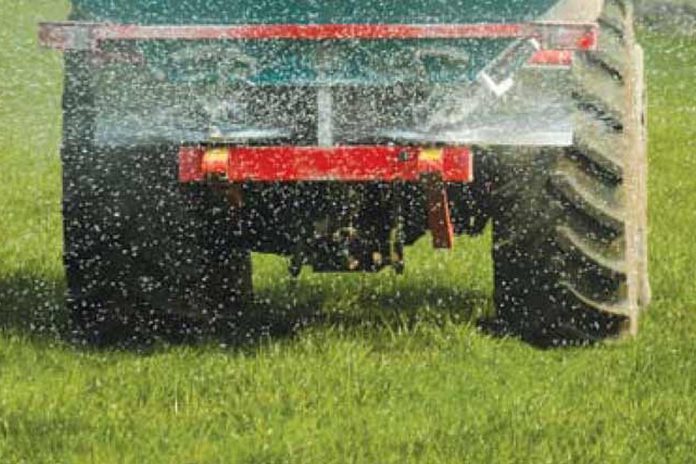Is it more justifiable to invest in nitrogen fertiliser than meal in the long run?
That is the question that may cross some readers’ minds when analysing commentary from Teagasc drystock advisor, Austin Callaghan, in a recent advisory bulletin.
In it, Callaghan acknowledged that fertiliser prices, particuarly nitrogen, have increased “dramatically” in the last six months.
He outlined that fertiliser is an input that farmers see as “very” expensive and added that many would prefer spending this money on meal.
However, he explained that “the truth is that meal is very expensive for the return it provides”.
According to Callaghan, one tonne of meal provides approximately 850kgs of dry matter material. Furthermore, he highlighted that meal is in the region of 15% water.
“A 50kg bag of CAN at 27% nitrogen contains 13.5kgs of nitrogen. Therefore in 1 tonne, there are 270kgs of nitrogen.”
“At peak, grass growth the response to chemical nitrogen applied is; 1kg of nitrogen can grow up to 50kgs of grass dry matter.”
“One tonne of CAN nitrogen could therefore grow 13500kgs of grass dry matter or 13.5 tonnes of dry matter.”
“So, compare 1 tonne of meal today costing €350, where you are buying 0.85 tonnes of dry matter with nitrogen at €720 per tonne that can grow 13.5 tonnes of dry matter [when you get peak response].”
In early spring and later in the year, the response to nitrogen could be one-quarter of this.
Similarly, the response to nitrogen reduces considerably in poor growing situations, where weather is poor.
High meal usage is problematic
When analysing farm profitability, he stated that, in many instances, it is the high meal usage on farms that is problematic.
“It is not the cost of the fertiliser purchased. This is not the case on farms where excellent grassland management is practiced, and meal inputs relative to farm output are already low,” he explained.
He stated that this will now change as the price of nitrogen has increased by approximately 250%.
He warned that if these high fertiliser prices last for several years, it will have “big” implications for farming in Ireland.
Other farming news:
Work underway to construct one of Europe’s largest liquid fertiliser plants





